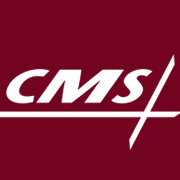CMS: Medicare Accountable Care Organizations Saved Over $466M
Providers in Medicare accountable care organizations significantly improved quality performance and lowered healthcare costs in 2015, CMS says.

- Medicare accountable care organizations (ACOs) saved more than $466 million in 2015, with 125 ACOs qualifying for shared savings payments under the value-based care model, CMS reported in an announcement earlier this week.

“The coordinated, physician-led care provided by Accountable Care Organizations resulted in better care for over 7.7 million Medicare beneficiaries while also reducing costs,” said Andy Slavitt, CMS Acting Administrator. “I congratulate these leaders and look forward to significant growth in the program in the coming year.”
In 2015, Medicare ACOs, including 392 Medicare Shared Savings Program (MSSP) and 12 Pioneer ACO model participants, generated more shared savings compared to previous years. As ACOs continue to participate in the alternative payment model, CMS stated that they generally performed better over time.
While there were 125 ACO participants who earned shared savings payments by meeting or exceeding quality performance and healthcare costs standards, CMS also reported that Medicare ACO participants significantly cut overall healthcare costs and improved quality of care.
Participants in the Pioneer ACO model generated over $37 million in total model healthcare savings, even as the number of participants decreased during 2015, CMS stated. Eight of the 12 total participants also produced healthcare savings with six earning shared savings payments by cutting healthcare costs outside of a minimum savings rate.
While four Pioneer ACOs experienced financial losses, only one participant faced repayment under the shared loss structure of the model because financial losses exceeded the healthcare costs threshold.
Producing higher levels of savings under the model was especially impressive, CMS noted, because the federal agency re-based financial benchmarking methodologies in 2015. CMS used a new set of baseline years to calculate financial thresholds, with new benchmarks now being based on the participant’s spending during their initial years of ACO participation under the model.
Pioneer ACO providers also improved their performance across several financial, quality of care, and patient experience measures, reported CMS. All providers in the Pioneer ACO model improved their quality scores by more than 21 percentage points from 2012 to 2015. Nine out of 12 Pioneer ACO providers also scored more than 90 percent on overall quality scores in 2015.
Additionally, participants in the MSSP continued to demonstrate quality of care improvement and lower healthcare costs, CMS stated. The MSSP ACOs generated $429 million in total program savings and 119 participants will receive shared savings payments.
Notably, no ACOs in Track 2 of the model owed the federal agency shared losses.
CMS reported that the financial results for MSSP ACOs in 2015 were as follows:
• 83 MSSP ACOs lowered healthcare costs below their financial thresholds, but did not qualify for shared savings
• 31 percent of MSSP ACOs produced healthcare savings that exceeded their minimum savings rate compared to just 28 percent in 2014 and 26 percent in 2013
• 45 percent of MSSP ACOs that participated in the Advance Payment or ACO Investment model, which offer some MSSP ACOs prospective savings, reduced healthcare costs above their minimum financial thresholds compared to just 29 percent of all other ACOs.
The federal agency also stated that MSSP ACOs with more experience were able to significantly lower healthcare costs more than less experienced providers. About 42 percent of MSSP ACOs that started the program in 2012 generated savings beyond their financial thresholds. Only 37 percent of 2013 starters, 22 percent of 2014 starters, and 21 percent of 2015 starters achieved greater savings above their minimum savings rate.
MSSP ACOs that reported in both 2014 and 2015 also improved on 84 percent of the quality measures on which they submitted data in both years. Participants also advanced their progress by more than 15 percent on several care measures, including screening for risk of future falls, depression screening and follow-up, blood pressure screening and follow-up, and providing pneumonia vaccinations.
Even participants in their second and third performance years substantially increased their composite quality performance scores in 2015 with over 91 percent earning Quality Improvement Reward points in at least one of four quality measure domains.
CMS also stated that some participants in tracks two and three of MSSP as well as providers in the Next Generation ACO model and the Comprehensive End-Stage Renal Disease Care program could be exempted from the proposed Merit-Based Incentive Payment System under MACRA. The exempted providers may face additional value-based incentive payments under the proposed Advanced Alternative Payment Models starting in 2019.
“Accountable Care Organization initiatives in Medicare continue to grow and achieve positive results in providing better care and health outcomes while spending taxpayer dollars more wisely,” said Patrick Conway, MD, CMS Principal Deputy Administrator and Chief Medical Officer. “CMS continues to work and partner with providers across the country to improve the way health care is delivered in the United States.”
Dig Deeper:
• Time, Commitment Required for ACO, Value-Based Care Success
• The Future of Accountable Care Organizations Involves Risk
